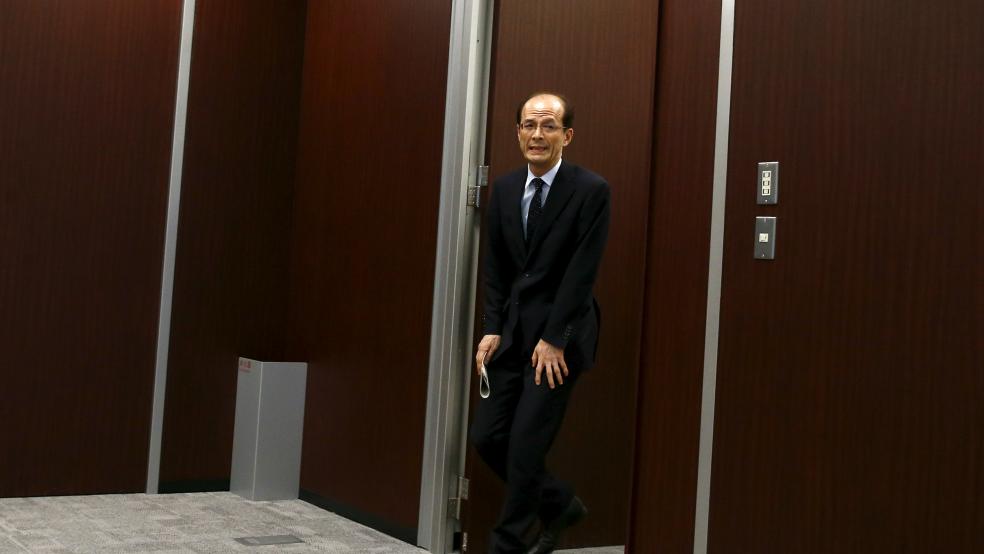TOKYO (Reuters) - Japan's Government Pension Investment Fund (GPIF) will not change its basic asset allocation even though yields for Japanese government bonds are falling due to the central bank's negative interest rate policy, its new chief said.
The country's trillion-dollar public pension fund targets keeping 35 percent of its total assets in JGBs and 25 percent each in domestic and foreign stocks.The GPIF needs to hedge against foreign currency moves to protect its assets from volatile market movements, Norihiro Takahashi told Reuters in an interview on Tuesday."The Bank of Japan introduced the negative interest rate policy in order to boost the economy and prices. Interest rates will rise if the policy works, which is why we do not see the need to change our basic asset allocation," Takahashi said. In 2014, GPIF made a historic shift by cutting its reliance on domestic bonds and increasing weightings of riskier assets in response to Prime Minister Shinzo Abe's push to promote a risk-taking investment approach. GPIF, which is already prepared to hedge against the risk of fluctuations in the dollar and euro, plans to broaden its approach for hedging, Takahashi said. It will hedge against drastic moves of not just dollar and euros but other currencies, he said, adding the fund will also hedge against both a strengthening and weakening yen."We need to show Japanese people that we take measures to minimize currency risks," said Takahashi. "It is an ideal that we can hedge not only just the dollar and yen but currencies for the third countries against the risk of fluctuations" Takahashi is a former executive at Norinchukin Bank[NORB.UL], a leading Japanese global institutional investor, and has expertise in fixed income management. On April 1, he succeeded Takahiro Mitani, a former Bank of Japan official who headed the pension fund since 2010. (Reporting by Takashi Umekawa and Junko Fujita; Editing by Edmund Klamann and Richard Borsuk)Japan's GPIF won't change its basic asset allocation: new chief

THOMAS PETER



